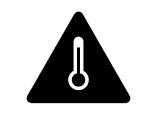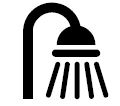Inflation Reduction Act
The Inflation Reduction Act (IRA), the largest package of climate investments in US history, was signed into law on August 16th, 2022. While some guidance on the legislation remains forthcoming, many of the opportunities for residents are now available! Interested in taking advantage of the IRA to buy an electric vehicle, or install solar, a heat pump, or a water heater? We’ve put together a step-by-step guide with resources on how to ensure said purchases qualify for IRA money. For the most up-to-date information, click here.
KEY TERMS
- Resident: As defined by the IRA, you may claim the Residential Clean Energy Tax Credit and/or the Energy Efficient Home Improvement Credit (for solar, heat pumps, and water heaters) for improvements to your main home (where you live most of the time), whether you own or rent it.
- Tax Credit: A tax incentive that allows taxpayers to subtract a given amount from the IRA tax credits are nonrefundable – once a taxpayer’s liability is zero (i.e. the credit covers the entire cost or more), the taxpayer won’t get any money back as a refund.
- Refundable vs. Nonrefundable Tax Credits: If a refundable credit exceeds the amount of taxes owed, the difference is paid as a refund. If a nonrefundable credit exceeds the amount of taxes owed, the excess is lost. IRA tax credits are nonrefundable. Click here for more information.
- Rebate: A partial refund of an amount
- EV: Electric Vehicles, vehicles that can be powered by an electric motor that draws electricity from a battery and is capable of being charged from an external source.
- Weight rating: The maximum amount of weight that a vehicle can handle safely
- Battery capacity: The energy storage capacity of a battery; For EVs, this determines the range, e. how far a vehicle can travel on a fully charged battery
- Fuel cell motor vehicles: FCEVs use a propulsion system similar to that of electric vehicles, where energy stored as hydrogen is converted to electricity by the fuel cell.
- Depreciation allowance: The amount, based on the depreciation of assets (loss of value), that a business can reduce its profit by when taxes are calculated; an estimate of the annual cost of using an item that is based on its acquisition cost divided by its assumed or estimated useful life.
- AGI: Adjusted Gross Income, includes your wages, dividends, capital gains, business income, retirement distributions as well as other Adjustments to Income include such items as Educator expenses, Student loan interest, Alimony payments or contributions to a retirement account.
- Alternative Minimum Tax (AMT): An alternative minimum tax (AMT) places a floor on the percentage of taxes that a filer must pay to the government, no matter how many deductions or credits the filer may The United States currently has an alternative minimum tax for taxpayers who earn above certain income thresholds.
Resident Installation Guide: Solar

Receive up to $10,000 or 30% of project cost in tax credits via the Residential Clean Energy Tax Credit
Average energy requirements, demonstrated by past electricity bills, will determine your solar needs. Click here to access the MN Solar Suitability App, which can help determine your solar needs and potential.
Reach out to several solar installation companies to receive quotes and bids for your project. The MN Solar Energy Industries Association provides a comprehensive list of providers – click here to access.
Consider bids from installers and select a plan that works for you.
Finalize a contract with your professional solar installation company and have your system installed. Maintain your system and keep track of its energy production.
Contractor labor, Solar PV Panels or PV Cells, Energy Storage Devices, and Sales Tax costs apply to the Residential Clean Energy Tax Credit (Tax Code Section 25D). Click here for information on filing for the Credit.
Resident Purchasing Guide: New Evs

Receive credit of up to $7,500 for purchases of new EVs made from 2023-2032 via the Clean Vehicle Tax Credit
EVs must be purchased for your own use within the U.S., and your modified adjusted gross income (line 11 on Form 1040) may not exceed $300k for couples filing jointly, $250k for heads of households, or $150k for all other filers.
Vehicles must be: new, have a gross vehicle weight rating of <14,000 pounds, a battery capacity of 7+ kWh, and be made by a qualified manufacturer. The MSRP of the vehicle cannot exceed $80k for vans, sport utility vehicles, or pickup trucks, or $55k for all other vehicles. Click here for a list of qualifying manufacturers and vehicles.
Vehicles must be: new, have a gross vehicle weight rating of <14,000 pounds, a battery capacity of 7+ kWh, and be made by a qualified manufacturer. The MSRP of the vehicle cannot exceed $80k for vans, sport utility vehicles, or pickup trucks, or $55k for all other vehicles. Click here for a list of qualifying manufacturers and vehicles.
Identify a dealer and complete the purchase. If EV is purchased after 2024, the tax credit may be transferred to the dealer, and presented as an up-front discount.
Resident Purchasing Guide: Used Evs

Receive credit of up to $4,000 or 30% of vehicle cost for purchases of models that are 2+ years old via the Credit for Previously Owned Clean Vehicles
You must not be the original owner of the EV, nor be able to be claimed as a dependent on another person's tax return, nor have claimed another used EV credit within 3 years. Modified Adjusted Gross Income (AGI) may not exceed: $150k for joint filers, $112k for heads of households, and $75 for all others
Vehicles must:
- Be sold for <$25k
- Be a model at least 2 years older than current year
- Have a weight rating of under 14,000 lbs.
- Be purchased for use in the US
- Have a capacity of at least 7 kWh
Vehicles must be made by a qualified manufacturer. Click here for a list of qualifying manufacturers and vehicles.
Ensure that your vehicle is purchased from a licensed dealer, and gather the following information:
- Name and taxpayer ID number of dealer and buyer
- Sale date and price
- Vehicle Identification Number (VIN)
- Battery Capacity.
Resident Installation Guide: Heat Pumps

Savings of up to 30% of heat pump costs ($2000 annual cap) for existing homes and up to
$2500 for new homes via the Residential Clean Energy Tax Credit and/or the Energy Efficient Home Improvement Credit
Electric or natural gas heat pumps, installed in already existing homes, are eligible for the Energy Efficient Home Improvement Credit. Geothermal heat pumps, installed in new or existing homes, are eligible for the Residential Clean Energy Tax Credit. For both credits, business use of the home may not exceed 20% in order to receive the full credit.
Choose and hire a local installer. Credit must be claimed in the year the pump is installed. For Residential Clean Energy Property Credit, unused credit may be carried forward. Certain labor costs can be included in credit calculations -- click here for more information.
Taxpayers subject to the alternative minimum tax (AMT) are eligible to claim both Energy Efficient Home Improvement Credit and Residential Clean Energy Property Credit and may offset the AMT with said credits. Credits are stackable. If replacing both water heater and heat pump, replacing in separate years allows you to maximize the credit cap of $2000.
For the Clean Energy Tax Credit and the Energy Efficient Home Improvement Credit, File Form 5695 (Parts I and II, respectively) with your tax return to claim the credit. Click here to access the tax form.
Resident Installation Guide: Water Heaters

Savings of up to 30% of water heater costs ($600-2000 annual cap) for existing homes and up to $2500 for new homes via the Residential Clean Energy Tax Credit and/or the Energy Efficient Home Improvement Credit
Natural gas, propane, oil, and electric or natural gas heat pump water heaters installed in existing homes are eligible for the Energy Efficient Home Improvement Credit. Solar water heaters may be eligible for the Residential Clean Energy Tax Credit. For both credits, business use of the home may not exceed 20% in order to receive the full credit.
Select either storage water heater, heat pump water heater, or solar water heater based on eligibility for tax credits, location of residence, and technology type and cost. Solar water heaters must be certified by the Solar Rating Certification Corporation or a comparable entity endorsed by your state.
Choose and hire a local installer. Credit must be claimed in the year the heater is installed. For Residential Clean Energy Property Credit, unused credit may be carried forward. Certain labor costs can be included in credit calculations -- click here for more information.
Taxpayers subject to the alternative minimum tax (AMT) are eligible to claim both Energy Efficient Home Improvement Credit and Residential Clean Energy Property Credit and may offset the AMT with said credits. Credits are stackable. If replacing both water heater and heat pump, replacing in separate years allows you to maximize the credit cap of $2000.
For the Clean Energy Tax Credit and the Energy Efficient Home Improvement Credit, File Form 5695 (Parts I and II, respectively) with your tax return to claim the credit. Click here to access the tax form.
Understanding your energy use allows you to best maximize savings and make the most of IRA offerings. An energy audit can provide this insight and is a great first step when considering any of the technologies listed above. Did you know there are free Home Energy Audits available in the Duluth area offered by Ecolibrium3 and Northern Energetics to customers of Minnesota Power and/or Comfort Systems? To schedule your free audit, call Minnesota Power at (218) 335-2843. To sign up online, click HERE!




